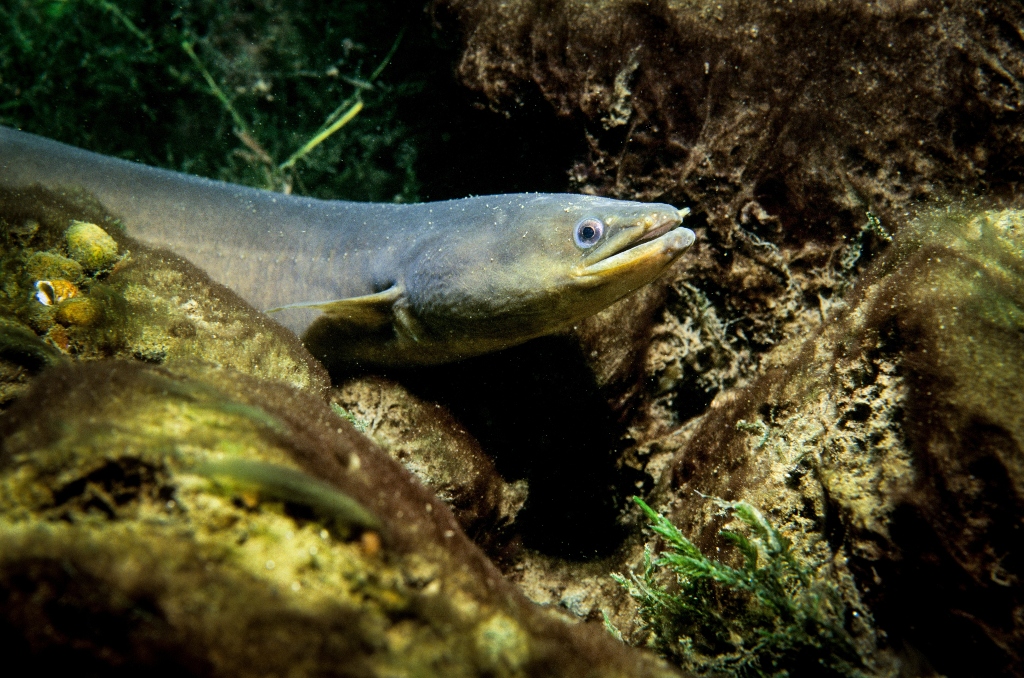Eels – Courtesy: Shutterstock – Image by RLS Photo
Concern over the invasive Asian swamp eel’s population expansion in Florida is growing, according to several agencies.
The public is encouraged to report sightings by the University of Florida, the U.S. Army Corps of Engineers, the U.S. Geological Survey, and other organizations.
The Asian swamp eel, scientifically known as “Monopterus albus,” was discovered for the first time in Florida in 1997. Its population surge in the Southeast, especially in the Sunshine State, is causing concern.
The possibility of invasion in new rivers and the detrimental consequences it might have on Florida’s biodiversity worry scientists. They added that it is unknown how the eel may affect freshwater systems, which sustain both commercial and recreational fishing.
According to Paul Evans, research coordinator for the UF/IFAS Invasion Science Research Institute (ISRI), “invasive species like the swamp eel can cause irreversible damage to our biodiversity, and Florida’s aquatic habitats are vital to our ecosystem and economy.” “Like any invasive species, their primary threat to our native species is their role as a novel predator.”
Southeast Asia is home to the unusual air-breathing fish known as the Asian swamp eel, which thrives in muddy, stagnant waters.
What experts know about the Asian swamp eel is as follows:
Because of their high degree of adaptability, swamp eels are well-known for their capacity to flourish in a wide range of aquatic habitats, including marshes, wetlands, and slow-moving streams.
They are opportunistic feeders that eat a variety of food, such as amphibians, small fish, and invertebrates.
The species may cause ecological changes in impacted areas by upsetting food webs and destroying native biodiversity.
Due to their high rate of reproduction, swamp eels are challenging to manage once they establish a population.
Individuals in Florida’s waterways are encouraged to report sightings by calling the FWC’s 888-Ive-Got-1 (483-468) hotline, the EDDMapS website or app, or the USGS Nonindigenous Aquatic Species website.
Stories that matter are our priority. At Florida Insider, we make sure that the information we provide our readers is accurate, easy-to-read, and informative. Whether you are interested in business, education, government, history, sports, real estate, nature or travel: we have something for everyone. Follow along for the best stories in the Sunshine State.
Melissa’s career in writing started more than 20 years ago. Today, she lives in South Florida with her husband and two boys.

